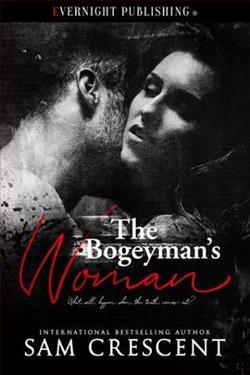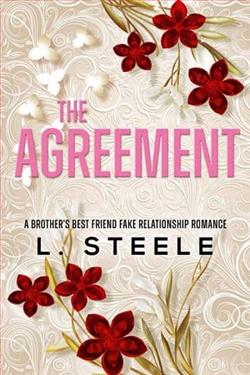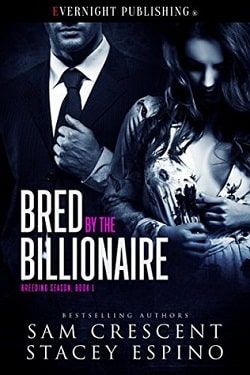Page 36 of What Happened to Lucy Vale
So Rachel helped her clear a place in the living room to practice. She put on headphones whenever Lucy and her friends started thumping around. She said nothing when Taylor Swift started leaking down from the attic at all hours.
Girls Lucy’s age were mutable. Their affections changed in an instant. She took it as a sign of progress. Lucy was changing.
Lucy was coming alive again.
Later Rachel would remember that time—late September and into October—as one of the happiest of her adult life. The weather was glorious in early autumn, crisp and vibrant and still full of color, as if every day were lightly caramelized in the oven. Slabs of sunlight fell like butter through the curtainless windows. Lucy hung string lights fromthe rafters in the attic. One weekend they crisscrossed three counties visiting different yard sales and antique stores, selecting side tables, resin lamps, wall tapestries, and a miniature figure of a horse and rider that Lucy wanted for the dining room.
Mornings were slow for Rachel with no deadlines to meet, no producer or editor to report to. She luxuriated in a bathrobe. She did theNew York Timescrossword in bed after Lucy caught the bus in a chaotic flurry of activity. She researched shade plants and garden follies. She stretched inside the emptiness—room after room of quiet, empty space. The house felt, on those cool fall mornings, like an animal, creaky with arthritis but warm-blooded, full of memory and grace. She’d never cared much about where she lived—she and Alan had furnished most of their first apartment from Target—but now she found herself fretting over damage to the banister, scouring, sharp-eyed, for signs of wood rot, dreaming of damask curtains that would pool like liquid on the floor.
She still hadn’t made any real friends. But she had acquaintances. The manager at the diner, Kelly, knew her name by now. Ted the librarian had advised about her peony beds. She kept a text thread going with two friends from graduate school, both scattered at different universities. She and her cousin spoke almost weekly; twice already she’d made the drive to Willard County to visit her aunt and uncle, still living in the sprawling bungalow where Rachel had been exiled on so many holidays and vacations. Rachel had been an adult before she’d understood that her mother, a functioning alcoholic and indifferent caretaker, had fobbed her off on relatives as often as she could.
But to Rachel it had never felt like a punishment. Indiana for her had been filled with freedom. She’d kissed her first boy in Indiana. Her first girl, too, during a game of spin the bottle.
And, of course, Indiana was where Lucy was conceived. Rachel had been twenty-two. Only six weeks from starting her graduate studies.
She remembered weeping when the pregnancy test registered positive.
Just get rid of it,her mother had said when Rachel finally told her.
It.That word,it, had needled Rachel. It. A collection of cells budding into body parts, into a heart and blood to beat it, into lungs and a liver, into fingers and feet. How long beforeitbecame aheor ashe?
She didn’t know. But as the days went by, she started to imagine her life dividing, splitting into a new life growing deep in her stomach. Like a flower was opening inside her. She started toggling a new reality in her head, imagining when she might breastfeed between classes, how she might afford diapers on her student stipend. She started juggling possible names. Nathan. Lucian. Lucy.
She hadn’t called the clinic after all.
Lucy had never expressed much curiosity about her real father. She’d bonded quickly with Alan, who took to parenting her with such practiced ease and obvious delight that Rachel resented him for it sometimes. Lucy called him Daddy Al, and they were close—so close that, at one point, Alan floated the idea of getting married and adopting Lucy officially. When Lucy eventually asked about her father, Rachel told her the truth: that she’d met a guy at a party and failed to use protection.
It was mostly true. There had been so many guys, and so many parties, the summer after she graduated. She’d been drinking so much then—self-conscious, desperate to appear sophisticated, desperate to be someone, to matter to someone. The truth was that Rachel didn’t know which of her bad decisions had resulted in her pregnancy.
But when she told Lucy that she’d never regretted it, not once—that was true. Motherhood had worked on her like an anchor on a rudderless ship, rooting her somewhere secure, tethering her to schedules and rhythms, calming the frenetic inner churn that, for much of her life, had kept her reaching—for another Adderall, another hit of weed, another drink. Another guy.
In the afternoons, Rachel rode her bike the four miles to the library. She wasn’t officially working, but she had emails to write, interview requests to answer. Her first book had only recently fallen off the bestseller list. Still, flickers of a new story—or maybe an old one—kept sparking to life in her head, trailing words like the phantom tail of acomet.There is no crime without a victim. No one can agree whether Nina and Lydia Faraday count. Some believe that the real victim was Tommy Swift.
She hadn’t explicitly moved Lucy to Indiana, or to the house at 88 Lily Lane, because she’d intended to write about Nina Faraday’s case. In many ways shedidn’twant to write about it. It was too domestic. Too predictable. It touched too close to her own history, especially that final trip to Indiana to visit her cousin during her cousin’s last year of college. Besides, she was supposed to be taking a break. Learning to garden. Bonding with Lucy, helping restore the family ties she’d neglected for years while hustling her way up the journalistic ladder.
But living in the old Faraday House, Rachel felt slowly absorbed into the mystery of its previous occupants—as if the house were a membrane inside of which the past was still alive. Sometimes, standing in her kitchen after breakfast, she had the sudden sensation of falling through space and time, plunging into the body of Lydia Faraday performing these same ritual tasks—loading the dishes, sweeping crumbs from the counter—and worrying about the very same things that worried Rachel. Who was her daughter texting? What was she texting about? What happened during the hours that her child was out of sight, sealed behind the implacable doors of some building at school, porously absorbing her classmates’ opinions and attention, cultivating friendships and enmities?
What was going on in her daughter’s life, at school, in her mind? Then she would feel a kind of gravitational pull back to the growing accumulation of research about the Faradays and find herself scouring old newspaper articles and interviews as if she might find the answer there.
How does a girl simply go missing?
How does she vanish into thin air?
Surely, surely, there must be a way to find her.
There must be a way to bring your daughter home again.
Twelve
We
It’s hard to explain what we felt about Lucy Vale—the obsession that took hold after the assembly. We tracked her outfits, posts, and extracurriculars. We alerted each other whenever she popped up in one of the Strut Girls’ stories, like she was some exotic bird we were tailing across the wilderness of social media. In a way it felt like watching a movie, one of those fairy tales in which an average girl, someone like us, discovers she is secretly a princess and gets whisked off to another world to claim her crown and marry a prince.
Somehow we were changing. Woodward was changing. And Lucy Vale was central to all of it, an invisible element of volatility, an extra pressure that gave friction and spark to buried tensions.
Of course, not all of us were fans. Alex Spinnaker still distrusted the Vales, mostly because he couldn’t find any dirt about them online. It was dubious logic but undeniable: Lucy Vale might have burst into existence only when Akash first spotted her behind the Faraday House, like one of those physics experiments when something becomes real only at the moment of being observed.
Spinnaker hunted for information about Lucy’s relatives and turned up a Susie Vale who lived right on the border of Willard County, putatively on the Jalliscoe side. He investigated every rumor filtered to usabout Lucy and her mom—specifically that Lucy was the product of an affair with a married man and that Rachel Vale wasthatkind of woman, a suggestion that whipped around after she declined an invitation to join the PTA. He threatened to collect Lucy’s DNA and have it tested for genetic links to our rivals, oscillating wildly between hypotheses that the Vales were living under an assumed identity and that they were Jalliscoe moles.















